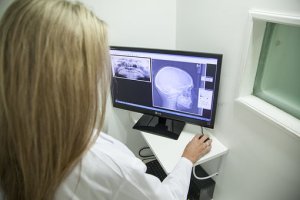TMJ is that “hinge” that connects the skull to the jawbone. Each side of the jaw ha one joint. TMJ disorder is a health condition that causes pain in the muscles and jaw joint. It mainly affects the muscles that are responsible for controlling the movement of jaws. Its exact cause is yet to be known.
The pain associated with it is caused by several factors such as jaw injury, arthritis, and genetics. Individuals who are severely affected tend to grind or clench their teeth. The discomfort and pain associated with this disorder are temporary. Many facilities have been set up to offer the Best TMJ treatment in Baton Rouge. Some of the effective methods used in relieving this pain include nonsurgical treatments and self-managed care.
What are the main causes of TMJ?
Joint and jaw injuries mainly cause it. A heavy blow can also affect muscles of the neck and head.
Other causes include the following:
- Uncontrolled movement of the disc or soft cushion between the socket and ball of your joint
Arthritis - Clenching or grinding of teeth- this is known for exerting a lot of pressure on your joint.
- Stress- it can lead to tightening of the jaw and facial muscles.

Symptoms and signs
The main symptoms associated with this disorder include:
- Tenderness or pain in the jaw
- Aching pain around and in the year
- Aching facial pain
- Difficulty pain or chewing while chewing.
- Locking of the joints-this may make closing or opening of the mouth difficult.
- Pain in the temporomandibular joints
- Swelling of the face
- Trouble chewing
- A tired feeling
Sometimes you might also experience headaches, toothaches, dizziness, hearing problems, ringing in the ear(s), hearing problems, earaches, and upper shoulder pain.
Diagnosis
It is done based on the symptoms. However, many health conditions cause similar symptoms such as sinus problems, tooth decay, gum diseases and arthritis. The exact cause of these symptoms is determined through a physical exam. The dentist might also ask about the patient’s health or medical history. Full face X-rays are used in viewing temporomandibular joints, and teeth. This test is helpful in ruling out other problems. Other tests that are done include computed tomography and magnetic resonance imaging.
Treatments
The major treatments include:
Homemade treatments-they are effective in relieving TMJ symptoms. They include using cold packs or moist heat, eating soft foods, and taking over-the-counter medications.
Traditional treatments- there are treatment options that have been recommended by dentists. They include prescribed medications, dental work and night guard.
